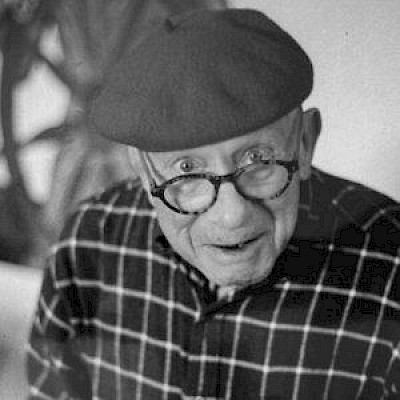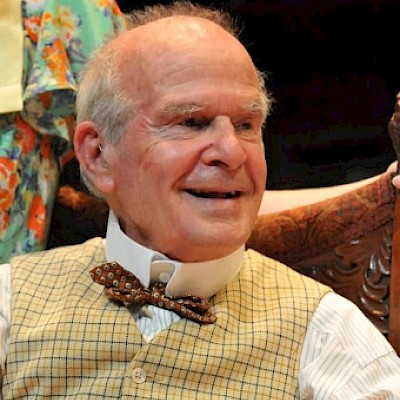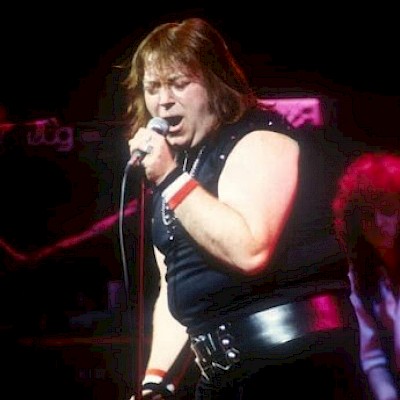
Justin Schmidt
Justin O. Schmidt, an intrepid entomologist who measured the agony of insect stings by allowing himself to be stung hundreds of times in creating a renowned and vividly descriptive pain scale that ranked them, died on Feb. 18 in Tucson, Ariz. He was 75.
His wife, Dr. Li Schmidt, said the cause was complications of Parkinson’s disease.
Dr. Schmidt, who brought a joyful exuberance to his work and gained a measure of pop culture fame from it, spent his career investigating the biochemistry and lethality of bee, wasp and ant venom, and how they used their natural weaponry to deter predators. And he suffered, willingly, for his research: He was stung, sometimes on purpose, more than 1,000 times by his count.
“Humans are fascinated by stinging insects,” he wrote in The Conversation, a nonprofit news website, in 2016. “Why? Because we have a genetically innate fear of animals that attack us, be they leopards, bears, snakes, spiders or stinging insects.”
Dr. Schmidt got over that fear. He studied stinging insects professionally for more than 40 years and wrote hundreds of peer-reviewed papers, earning the sobriquet “king of sting.” His 2016 memoir, “The Sting of the Wild: The Story of the Man Who Got Stung for Science,” brought him renown for his colorful Pain Index for Stinging Insects, which he began in 1983.
He ranked, from 1 to 4, the pain caused by the stings of 80 types of bees, wasps and ants that he had encountered, and gave vivid descriptions of what they felt like.
Anthophorid bee, Level 1: “Almost pleasant, a lover just bit your earlobe a little too hard.”
The bullhorn acacia ant, Level 1.5: “A rare, piercing, elevated sort of pain. Someone has fired a staple into your cheek.”
Red-headed paper wasp, Level 3: “Immediate, irrationally intense and unrelenting. This is the closest you will come to seeing the blue of a flame from within the fire.”
Bullet ant, Level 4: “Pure, intense, brilliant pain. Like walking over flaming charcoal with a 3-inch nail in your heel.”
“When Schmidt recalls a certain agonizing sting, a memory that remains vivid decades after the pain has faded, he’s not just spinning a tale,” Avi Steinberg wrote in a profile of Dr. Schmidt in The New York Times Magazine in 2016. “He’s documenting a theory about how sting pain functions: as a deterrent, whereby it creates a memory of pain that stays with a predator for life.”
Dr. Schmidt insisted that he didn’t necessarily want to be stung.
“Want is kind of a dual word,” he told NPR in 2016. “I want the data but I don’t want the sting.”
Justin Orvel Schmidt was born on March 23, 1947, in Rhinelander, Wis., and grew up in Boalsburg, Pa. His father, Orvel, was a forestry professor at Penn State University, and his mother, Jane (Groh) Schmidt, was a home economics teacher.
He grew up among weeds, wildflowers and insects. One day, he recalled, he and several other boys threw rocks at a hornet’s nest in an old apple tree, hoping to topple it.
After their attempts failed, Justin moved closer to the tree and delivered a direct hit. Half the nest fell to the ground. As he ran away, he was stung multiple times on his back.
“It felt like someone had repeatedly struck the back of my neck with a hot branding iron,” he wrote in his memoir. “That was my first experience with what would decades later become a 2 on the insect-sting pain scale.”
He received a bachelor’s degree in chemistry from Penn State in 1969 and a master’s from the University of British Columbia three years later. But he turned to entomology for his Ph.D. at the University of Georgia because, he wrote, chemistry lacked “living, moving” nature — “insects to be exact.”
He studied harvester ants, collecting them on drives around the country with his first wife, Deborah Wragg, a zoology student.
“Wham, an ant stung me,” he wrote, as he started his travels around Georgia. “Serendipity had struck. This was no ordinary sting. This sting really hurt. The pain, delayed at first, became piercing and excruciating.”
A life’s work had begun. After postgraduate work at the University of Georgia and the University of New Brunswick, in Canada, he was hired in 1980 as a research entomologist at the Carl Hayden Bee Research Center in Tucson, part of the United States Department of Agriculture, which works to improve the health of honey bee colonies.
He retired in 2005, but by then had also established his own nonprofit laboratory, where he conducted his research until recently. One project was recording the mating habits of vinegaroons, an arachnid that sprays a combination of acids that smells like vinegar, on property that he owned in a wildlife area in southeastern Arizona.
“He was one of the most insatiably curious people I’ve ever met,” Stephen Bachmann, a colleague at the Hayden center and a close friend, said in a telephone interview. “He questioned everything and didn’t suffer fools, especially administrators.”
Martha Hunter, a professor of entomology at the University of Arizona, where Dr. Schmidt was an adjunct scientist, called him “an amazing natural historian” with an extensive knowledge of the plants of the Sonoran desert, in addition to stinging insects.
“The story is that Justin once grabbed a tarantula hawk, just to see what the sting would be like,” she said. “It’s the last thing I would do.”
The tarantula hawk, a kind of wasp, ranked a 4 on the pain index:
“Blinding, fierce, shockingly electric. A running hair dryer has just been dropped in your bubble bath.”
“I know some people think me crazy, but I am no masochist, and only occasionally am stung on purpose,” he told The Guardian in 2018. “When it does happen, I initially react as anyone else would — cursing, more than I should admit. Then I get out my notebook and stopwatch, sit down and make notes.”
In addition to his wife, Dr. Schmidt is survived by their sons, Kalyan and Veris; a daughter, Krista Jewell Schmidt, and a son, Scott, from his marriage to his second wife, Pat Figuli, which ended in divorce; his sister, Freya Phillips; his brother, Dan; and three grandchildren. His marriage to Ms. Wragg ended in her death.
In recent years, Dr. Schmidt’s easy-to-understand insect pain scale brought him to a wider world outside entomology. It was mentioned in the 2015 superhero film “Ant-Man” and was central to the Ted-Ed animated cartoon “It Hurts” (2021), for which he was credited as the educator and was a character. The scale was cited in a clue on “Jeopardy!” this year.
When he appeared on “Jimmy Kimmel Live!” in 2016, Dr. Schmidt wore a red T-shirt with the image of a bug on it and brought along several types of stinging insects, including red and black harvester ants.
“The black ones only hurt for four hours,” Dr. Schmidt said. “So if you can imagine someone taking some needle nose pliers and digging underneath your skin and grabbing tendons and nerve and kind of ripping them for about for four hours.”
But the pain of the red one, he said, “goes on for eight hours. You get the bonus with no extra charge.”
•
Remembering Justin Schmidt
Use the form below to make your memorial contribution. PRO will send a handwritten card to the family with your tribute or message included. The information you provide enables us to apply your remembrance gift exactly as you wish.




